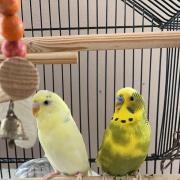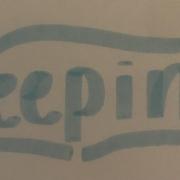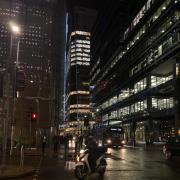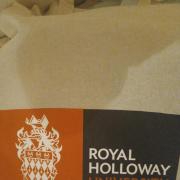
On 22nd February the causal strollers, the serious shoppers and the art enthusiasts thronging the streets of Mayfair, Piccadilly were greeted with an unusual sight. Outside some of the high-end shops that flaunt luxury dreams, were scores of activists with placards and megaphones. The streets, fringed by massive honey-hued stone buildings, reverberated with their slogans. “Fur trade is torture trade”- the rhyming words had a catchy ring to it.
While the shops pulled close their shutter bars, curious pedestrians were captivated by the activities of these peaceful but vehement protesters. To announce their cause and establish the relevance of their protest, the activists were playing videos on a screen fixed to the side of a minivan. They were also handing out flyers. This was my first encounter with PETA - People for the Ethical Treatment of Animals.
Though I have family members wearing down-feather winter jackets, I had never wondered about the origin of those feathers. Through this protest that they have organised, I - and I assume many more blissfully ignorant passivists like me - have chanced upon the intricacies of the fur trade. Goose-down is sourced from goose farms, where they are reared, slaughtered and dropped into scalding water to take out their feathers. Logically thinking, it is not any more of a violent act than having a chicken nugget. Instead of trashing the feathers, the fur industry opts to put it to use. In that sense, only a true vegan holds the right to point figures at the fur trade industry. Besides, developed nations have strict regulations in place regarding animal husbandry to ensure ethical practises. At least, that is what I told myself, until I came upon the footage shot by PETA Asia as part of their investigation into Scotland’s wool industry. Footage show shearers abusing gentle-natured sheep: hitting them, pinning them down to the ground with feet on the sheep’s neck, wounding the animals with recklessly fast shearing, roughly sewing up the bleeding animal without pain medication; and after shearing tossing them off like garbage bags.
Totally avoidable and unnecessary acts of violence. It’s hard not to have your blood boil; it’s hard not to feel ashamed.
There are designer fashion brands that market parkas made with goose-down that come with a removable coyote fur-lined hood. Attached to these are price tags of more than 1000$. Governments sanction culling of coyotes, deer and other animals, yearly, in population control programs in areas where their numbers have tipped the balance of the local ecosystem. Designer wear industry has always claimed that their raw materials are from sustainable sources that follow strict guidelines for trapping and rearing wild animals. Unfortunately, this is not always true. If you care to poke around, you will find footages of congested cages stacked with wild animals being reared in agonizing conditions in animal farms, that are some of the sources of fur for the fashion industry.
I don’t agree with the argument of totally avoiding animal-based products. For one thing, it’s not always practical. Manufacture of fur and down alternatives can be a Carbon intensive process, often involving the use of plastic derivatives, which in turn depends on the crude oil refining industry. There are terrains and climatic conditions adverse for crops where certain animals can thrive. It provides livelihood for a vast number of people, especially in developing countries. Raw materials like sheep’s wool are renewable, where we need not kill the animal providing us with the resource.
What we really need is to ensure the welfare of the animals under our care. The premium price we pay for these products - at least some of it - should be translated to the welfare measures for these animals. If it needs a regulation change, then so be it. If the need of the hour is more screening procedures by the government’s animal welfare unit, then let’s root for that. If it’s the lack of adequate resources undermining our efforts to ensure the welfare of the animals under our care, then let’s have the multibillion-dollar industry set aside a part of its profit or have the consumer pay a premium. Whatever it is, we need to act. We can no longer turn a blind eye towards this cruelty and call ourselves human.





























